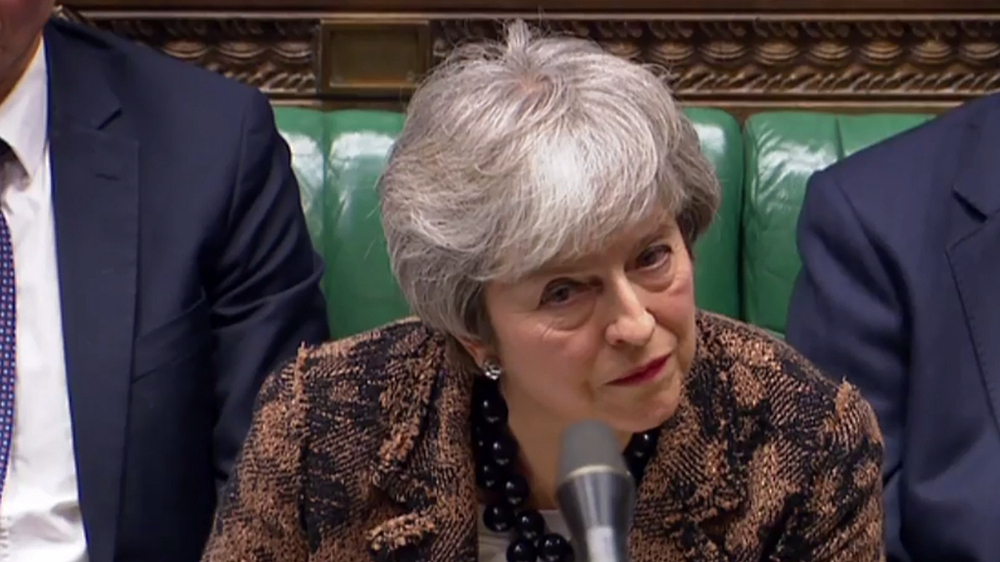
Europe
15:31, 22-Jan-2019
What's next with Brexit?
By Nayan Seth and Zhang Jing
01:35

What exactly will happen in the UK parliament over the next few days and weeks? Let's have a look at some of the possible outcomes.
This week, members of parliament are expected to propose amendments to May's plan or put forward their own. Next Tuesday, January 29, they will debate these alternate Brexit proposals or even May's Plan B and vote on them.
Remember, these would not be "meaningful votes", rather they would just be "indications" for a future course of action. If May's plan is accepted with few modifications, she is likely to go back to the European Union (EU), renegotiate, and then put a new deal to parliament again.
Time is running out for Theresa May, as the March 29 deadline approaches. But the timeline may change depending on how the UK Parliament behaves over the next week.

Britain's Prime Minister Theresa May listens as opposition Labour party leader Jeremy Corbyn responds to her statement on changes to her Brexit withdrawal agreement, in the House of Commons in London, January 21, 2019. /VCG Photo
Britain's Prime Minister Theresa May listens as opposition Labour party leader Jeremy Corbyn responds to her statement on changes to her Brexit withdrawal agreement, in the House of Commons in London, January 21, 2019. /VCG Photo
So, here are some possible scenarios.
One, MPs could move amendments to seize control over the whole Brexit process and assume power to propose and debate new legislation. Analysts believe one significant result could be an extension of that looming March 29 deadline. In that case, the onus would be on the EU's other 27 member states to agree. Experts say, while this option could be considered radical, it is entirely possible given the current deadlock.
Another possibility is the removal of the controversial "Irish backstop" clause, which irritates so many. MPs may unite and look to omit it entirely from the withdrawal agreement. May would then be forced to go back to Brussels and look to renegotiate the deal with the EU. But the bloc has made it abundantly clear that it will not entertain any revised draft without the backstop. This deadlock leads us to the so called "doomsday" scenario where the UK Parliament fails to agree to a consensus and the country leaves the EU without an agreement on March 29.

SITEMAP
Copyright © 2018 CGTN. Beijing ICP prepared NO.16065310-3
Copyright © 2018 CGTN. Beijing ICP prepared NO.16065310-3